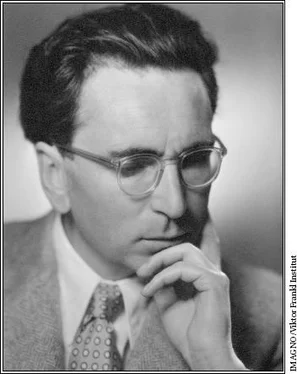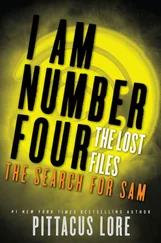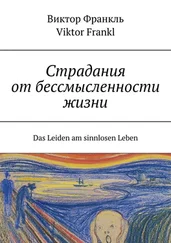Of course, this was no therapy in the proper sense since, first, his despair was no disease; and second, I could not change his fate; I could not revive his wife. But in that moment I did succeed in changing his attitude toward his unalterable fate inasmuch as from that time on he could at least see a meaning in his suffering. It is one of the basic tenets of logotherapy that man’s main concern is not to gain pleasure or to avoid pain but rather to see a meaning in his life. That is why man is even ready to suffer, on the condition, to be sure, that his suffering has a meaning.
But let me make it perfectly clear that in no way is suffering necessary to find meaning. I only insist that meaning is possible even in spite of suffering—provided, certainly, that the suffering is unavoidable. If it were avoidable, however, the meaningful thing to do would be to remove its cause, be it psychological, biological or political. To suffer unnecessarily is masochistic rather than heroic.
Edith Weisskopf-Joelson, before her death professor of psychology at the University of Georgia, contended, in her article on logotherapy, that “our current mental-hygiene philosophy stresses the idea that people ought to be happy, that unhappiness is a symptom of maladjustment. Such a value system might be responsible for the fact that the burden of unavoidable unhappiness is increased by unhappiness about being unhappy.” 4And in another paper she expressed the hope that logotherapy “may help counteract certain unhealthy trends in the present-day culture of the United States, where the incurable sufferer is given very little opportunity to be proud of his suffering and to consider it ennobling rather than degrading” so that “he is not only unhappy, but also ashamed of being unhappy.” 5
There are situations in which one is cut off from the opportunity to do one’s work or to enjoy one’s life; but what never can be ruled out is the unavoidability of suffering. In accepting this challenge to suffer bravely, life has a meaning up to the last moment, and it retains this meaning literally to the end. In other words, life’s meaning is an unconditional one, for it even includes the potential meaning of unavoidable suffering.
Let me recall that which was perhaps the deepest experience I had in the concentration camp. The odds of surviving the camp were no more than one in twenty-eight, as can easily be verified by exact statistics. It did not even seem possible, let alone probable, that the manuscript of my first book, which I had hidden in my coat when I arrived at Auschwitz, would ever be rescued. Thus, I had to undergo and to overcome the loss of my mental child. And now it seemed as if nothing and no one would survive me; neither a physical nor a mental child of my own! So I found myself confronted with the question whether under such circumstances my life was ultimately void of any meaning.
Not yet did I notice that an answer to this question with which I was wrestling so passionately was already in store for me, and that soon thereafter this answer would be given to me. This was the case when I had to surrender my clothes and in turn inherited the worn-out rags of an inmate who had already been sent to the gas chamber immediately after his arrival at the Auschwitz railway station. Instead of the many pages of my manuscript, I found in a pocket of the newly acquired coat one single page torn out of a Hebrew prayer book, containing the most important Jewish prayer, Shema Yisrael . How should I have interpreted such a “coincidence” other than as a challenge to live my thoughts instead of merely putting them on paper?
A bit later, I remember, it seemed to me that I would die in the near future. In this critical situation, however, my concern was different from that of most of my comrades. Their question was, “Will we survive the camp? For, if not, all this suffering has no meaning.” The question which beset me was, “Has all this suffering, this dying around us, a meaning? For, if not, then ultimately there is no meaning to survival; for a life whose meaning depends upon such a happenstance—as whether one escapes or not—ultimately would not be worth living at all.”
Meta-Clinical Problems
More and more, a psychiatrist is approached today by patients who confront him with human problems rather than neurotic symptoms. Some of the people who nowadays call on a psychiatrist would have seen a pastor, priest or rabbi in former days. Now they often refuse to be handed over to a clergyman and instead confront the doctor with questions such as, “What is the meaning of my life?”
A Logodrama
I should like to cite the following instance: Once, the mother of a boy who had died at the age of eleven years was admitted to my hospital department after a suicide attempt. Dr. Kurt Kocourek invited her to join a therapeutic group, and it happened that I stepped into the room where he was conducting a psychodrama. She was telling her story. At the death of her boy she was left alone with another, older son, who was crippled, suffering from the effects of infantile paralysis. The poor boy had to be moved around in a wheelchair. His mother, however, rebelled against her fate. But when she tried to commit suicide together with him, it was the crippled son who prevented her from doing so; he liked living! For him, life had remained meaningful. Why was it not so for his mother? How could her life still have a meaning? And how could we help her to become aware of it?
Improvising, I participated in the discussion, and questioned another woman in the group. I asked her how old she was and she answered, “Thirty.” I replied, “No, you are not thirty but instead eighty and lying on your deathbed. And now you are looking back on your life, a life which was childless but full of financial success and social prestige.” And then I invited her to imagine what she would feel in this situation. “What will you think of it? What will you say to yourself?” Let me quote what she actually said from a tape which was recorded during that session. “Oh, I married a millionaire, I had an easy life full of wealth, and I lived it up! I flirted with men; I teased them! But now I am eighty; I have no children of my own. Looking back as an old woman, I cannot see what all that was for; actually, I must say, my life was a failure!”
I then invited the mother of the handicapped son to imagine herself similarly looking back over her life. Let us listen to what she had to say as recorded on the tape: “I wished to have children and this wish has been granted to me; one boy died; the other, however, the crippled one, would have been sent to an institution if I had not taken over his care. Though he is crippled and helpless, he is after all my boy. And so I have made a fuller life possible for him; I have made a better human being out of my son.” At this moment, there was an outburst of tears and, crying, she continued: “As for myself, I can look back peacefully on my life; for I can say my life was full of meaning, and I have tried hard to fulfill it; I have done my best—I have done the best for my son. My life was no failure!” Viewing her life as if from her deathbed, she had suddenly been able to see a meaning in it, a meaning which even included all of her sufferings. By the same token, however, it had become clear as well that a life of short duration, like that, for example, of her dead boy, could be so rich in joy and love that it could contain more meaning than a life lasting eighty years.
After a while I proceeded to another question, this time addressing myself to the whole group. The question was whether an ape which was being used to develop poliomyelitis serum, and for this reason punctured again and again, would ever be able to grasp the meaning of its suffering. Unanimously, the group replied that of course it would not; with its limited intelligence, it could not enter into the world of man, i.e., the only world in which the meaning of its suffering would be understandable. Then I pushed forward with the following question: “And what about man? Are you sure that the human world is a terminal point in the evolution of the cosmos? Is it not conceivable that there is still another dimension, a world beyond man’s world; a world in which the question of an ultimate meaning of human suffering would find an answer?”
Читать дальше












